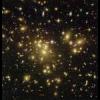This is mostly just my hypothesis but from Katsyuba 2017 I see that both the de novo and the salvage pathways use one same enzyme.
[1]
In the de novo pathway,
NA —> NAMN —> NAAD —> NAD+
The change from NAMN to NAAD is catalysed by NMNAT.
In the salvage pathway,
NR —> NMN —> NAD+
The change from NMN to NAD+ is catalysed by NMNAT.
So, for those taking NR having a shorter route to NAD+, we shouldn’t take NA at the same time?
If NMNAT is limited, then wouldn’t engaging it through the de novo pathway by taking NA be taking away the needed NMNAT for NR?
I’ve always thought that taking NA will help increase NAD+ level because it uses another pathway.
Reference:
[1]
Modulating NAD(+) metabolism, from bench to bedside.
Katsyuba E, et al. EMBO J. 2017 Sep 15;36(18):2670-2683. doi: 10.15252/embj.201797135. Epub 2017 Aug 7.
https://www.ncbi.nlm...ubmed/28784597/
Edited by recon, 11 November 2017 - 03:49 AM.
































 This topic is locked
This topic is locked













